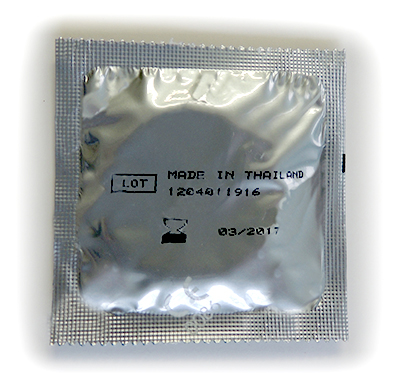Worn on the penis during sex, the male (external) condom provides a barrier which collects semen (fluid that contains sperm) and stops the transfer of fluids with a partner.
Condoms are a very effective way to prevent sexually transmissible infections (STIs). Condoms can also be used as a contraceptive to prevent pregnancy but they are not as effective at preventing pregnancy as some other contraceptive methods such as the contraceptive pill or implant.
Think you know how to use a male (external) condom?
It’s important for both girls and guys to know how to use the male (external) condom correctly; even if you’re not currently sexually active. Get some condoms, become familiar with how to use them, and you’ll feel confident in using them when the time comes.
Where can I get condoms?
Male (external) condoms are sold in lots of places such as chemists, supermarkets, petrol stations, online and some public bathrooms.
Condoms are free at all Family Planning NSW clinics and heaps of other services accross NSW, as part of our Freedom Condom project.
What do I do if the condom breaks during sex?
Couples may not notice if the condom breaks during sex, but if you do notice the condom has broken, stop straight away, remove it and use a new one.
If you notice after sex that the condom had broken, both partners should consider having a sexual health check to test for STIs. This can be done at Family Planning NSW clinics, sexual health clinics or your local GP.
If your partner is female, and not using a hormonal form of contraception, you will need to consider the risk of unintended pregnancy. Girls can access the Emergency Contraceptive Pill (ECP) from a pharmacy and do not need a prescription from the doctor. The ECP can be taken up to five days after unprotected sex, however the sooner it is taken the more effective it is.
Find more information about ECP here.
If you are unsure what to do you can call Family Planning NSW Talkline 1300 658 886 for information and advice.
Do I need to use lubricant with condoms when they are already lubricated?
Because all condoms in Australia are now pre-lubricated, you do not have to use additional lubrication for vaginal sex, but it can be used if required or preferred.
Additional water-based lubricant is advised for anal sex since this part of the body does not have natural lubrication.
Find more information about lubricant here.
Do condoms expire?
Yes, condoms do expire. Expired condoms can be dry, weaker and are more likely to break. If stored properly, most condoms have a three to five year expiry date from when they were manufactured. The expiry date is printed on the back of the packet – usually just the month and the year – and can be written in different orders, e.g. 06-2017 or 2017/06.
Check the expiry date before using any condom as you never know how long it’s been at the store or you may have had it in your draw for while so check again before it’s time to use it. If the condom is expired, throw it away and use a new one.

Where’s the best place to store condoms?
Store condoms in a cool, dry place, out of direct sunlight and where they will be unlikely to get damaged. A drawer, cupboard or in your toilet-bag are good ideas for safe places to keep condoms. Condoms don’t like heat or friction so storing them for long periods of time in your wallet or car can damage the latex and cause them to break during use. For a short period of time (e.g. for a night out) it is ok to keep a condom or two somewhere convenient – like in your wallet or car; however a better idea is to keep them in a bag or purse.
Do I need to use condoms for blowjobs?
Oral sex is very safe in regards to the risk of pregnancy, and safer for some sexually transmitted infections such as HIV/AIDS. It is possible though to pass on other sexually transmissible infections (STIs) like HPV (genital wart virus), herpes and gonorrhoea and for this reason the use of barriers like condoms and dams is still recommended.
Find more information about dams here.
When can I stop using condoms with my partner?
If you and your partner want to stop using condoms there’s a few things to consider to ensure you are making the right decision.
- Talk with your partner openly about your relationship and being ‘exclusive’ / monogamous (only having one sexual partner). If you or your partner has other sexual partners, not using condoms will greatly increase the risk of getting and passing on an STI.
- Make sure you’ve both had a recent sexual health check. Many STIs have no symptoms so even if you think you don’t have one; you or your partner may without knowing it. Get tested together before you stop using condoms.
- If you’re in a girl/guy relationship, and not planning to get pregnant, discuss how you will prevent unintended pregnancy and consider what contraceptive method you will use that will be reliable and that suits your lifestyle. Long Acting Reversible Contraceptives (LARCs) e.g. the rod, are a good option as they are a safe, highly effective, long lasting and inexpensive. You can talk about contraception with your GP when you go for your sexual health check.
![]()

